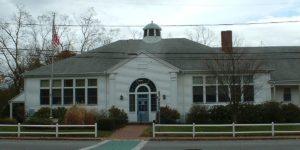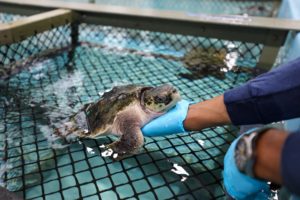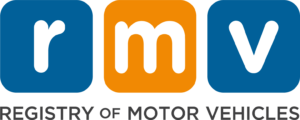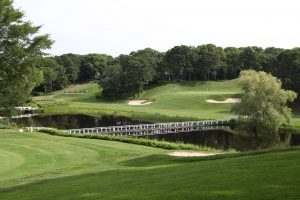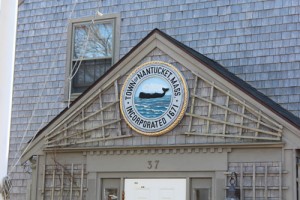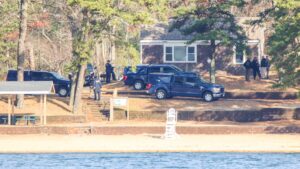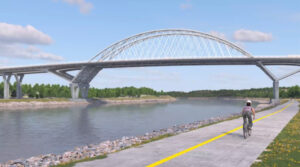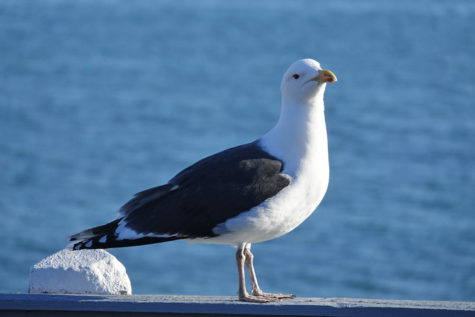 The Cape Wildlife Center on Main Street in Barnstable is one of only two wildlife rehabilitation facilities on Cape Cod.
The Cape Wildlife Center on Main Street in Barnstable is one of only two wildlife rehabilitation facilities on Cape Cod.
Cape Cod is known for its natural beauty and vibrant ecology. Locals are treated to the sounds of red-winged blackbirds calling in the spring, the quick glimpses of foxes trotting along edges of overgrowth, and the majesty of whales breaking water not far from the coast.
But what many don’t realize is how many of the animals around us end up needing help. Turtles get caught up in fishing gear; raccoons are run over on our highways; birds fly into windows daily.
That is where the Cape Wildlife Center steps in: they advocate for the well-being of our animal neighbors, and fix them up when they’re injured. They keep the circle of life rotating for the very creatures we take for granted.
What the Cape Wildlife Center Does
The Center treats thousands of injured wild animals every year. There are roughly 230 naturalized species in Massachusetts (not including all of the bird life), and the Center generally sees almost every one of them come in for treatment.
While administering specialized, individual medical care to these creatures is certainly a large part of the organization’s operations, the greatest responsibility the center has is to turn those instances into educational opportunities.
Zak Mertz of the New England Wildlife Center, who is also helping with the Barnstable establishment, said they often handle very poignant moments between wild animals and the people who find them and bring them in for care. He said that these moments are prime for teaching about the animal’s biology.
“Our hope is that they’ll take that experience with them and help others to react appropriately in similar situations,” he said.
Mertz encourages anyone who finds an animal in need to call (508) 362-0111. Remember: the creature may not need help, so call before attempting to pick it up.
What Kinds of Animals are Assisted at the Cape Wildlife Center
Cape Cod’s unique ecology, geography, and proximity to the ocean make for a real diversity of Wildlife Center patients. Seabirds like dovekies are more regular patients here than they would be at the Weymouth-based NEWC.
Most of the time, however, it’s the foxes, raccoons, squirrels, rabbits and ample songbirds which are brought in, especially during baby season in the spring.
It’s this time of year that the staff is really pushed to its limits. Many unaware residents might come across baby rabbits, for instance, and assume they’ve been abandoned or that the parents have been killed. But mother rabbits spend most of their day away from the den.
History of the Cape Wildlife Center
Long-time animal activist Barbara Birdsey and her husband donated some of their properties across New England to form a wildlife trust in 1986, while allowing local rehabbers to release recuperated animals on these remote sites.
But Barbara said she quickly noticed how scarce resources were for these facilities and how few of them there were. So, in the late 80s, the Birdseys began a training program in West Barnstable which eventually grew in interest enough to warrant the establishment of a full-fledged rehab center.
After it outgrew an initial location on Meadow Lane, the center was moved into the Birdseys’ former house. A short time later, the family turned over the project to the Humane Society of the United States, which later transferred it to its current location in Cummaquid.
Funding Troubles
In 2016, the Humane Society of the United States decided that it could no longer fund the Cape Wildlife Center. It was given only a few months to continue before closing permanently, but volunteers from throughout the community stepped in to keep it going through at least the winter. In early 2017, more support came through from the New England Wildlife Center in South Weymouth which allowed the Barnstable center to stay open for at least two years. As of March 2017, the operation plans on reaching out to the community for support more than ever before.
Why Save Wild Animals?
It’s easy to sit high on the throne of being human. We have our own troubles to deal with on the daily: bills, food, trying to live a meaningful life. It is understandable that the trials and tribulations of baby squirrels, raccoons and red-tailed hawks don’t cross our minds very often.
But whether we’d like to believe it or not, our lifestyles can and do negatively impact these creatures, and most of the time, they don’t have to.
Mertz says that, in Massachusetts alone, there are millions of animals each year in need of medical treatment. The few rehabilitation facilities available in the state can treat maybe 10,000 of those individuals. But doing so has to have a social impact as well: just a little more mindfulness and compassion for the well-being of our neighbors.
Funding facilities like the Cape Wildlife Center also provides training opportunities for veterinarians-in-training. Many vets study at wild animal facilities before treating your dog or cat.
By CapeCod.com Staff




